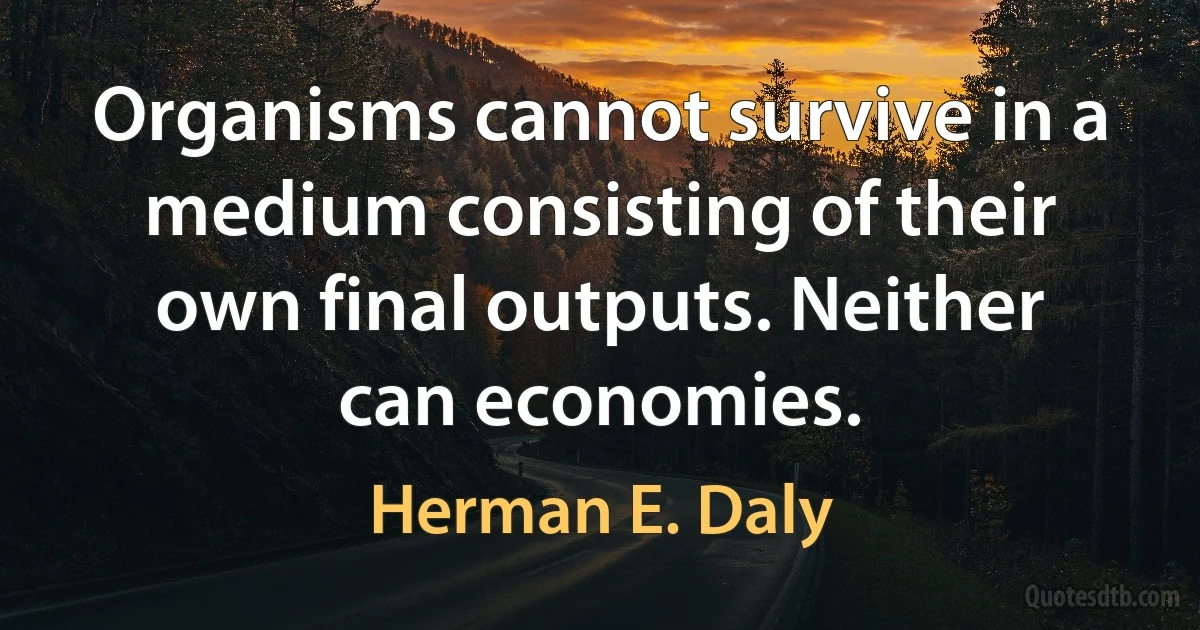Herman E. Daly quotes
The notion of a steady state has meant different things at different times in history. To the traditional or classical economist, the steady state takes the biophysical dimensions of the planet - including population and available resources - as given and adapts technology and tastes to these objective conditions.

Herman E. Daly
Economic logic requires that we maximize the productivity of the limiting factor in the short run, and invest in increasing its supply in the long run. When the limiting factor changes, then behavior that used to be economic becomes uneconomic. Economic logic remains the same, but the pattern of scarcity in the world changes, with the result that behavior must change if it is to remain economic. Instead of maximizing returns to and investing in man-made capital (as was appropriate in an empty world), we must now maximize returns to and invest in natural capital (as is appropriate in a full world). This is not "new economics,” but new behavior consistent with "old economics” in a world with a new pattern of scarcity.

Herman E. Daly
The optimal scale of the economy is smaller, the greater (a) the degree of complementarity between natural and man-made capital; (b) our desire for direct experience of nature; and (c) our estimate of both the intrinsic and instrumental value of other species. The smaller the optimal scale of the economy, the sooner its physical growth becomes uneconomic.

Herman E. Daly
We have lived for 200 years in a growth economy. In this time we have come to believe that all our major economic ills – from unemployment and poverty to overpopulation and even environmental degradation – can be solved by more growth. And if the global economy existed in a void perhaps that would be true. But it does not.

Herman E. Daly
Instead the economy is a subsystem of the finite biosphere that supports it. When the economy's expansion encroaches too much on the surrounding biosphere, we begin to sacrifice natural capital (animals, plants, minerals and fossil fuels) that is worth more than the manmade capital (roads, factories, appliances) added by ‘growth'.

Herman E. Daly


